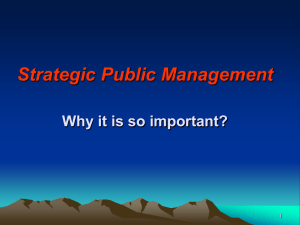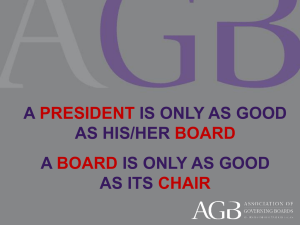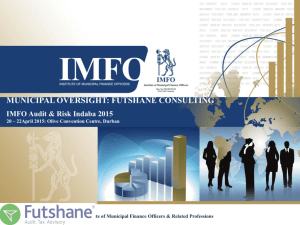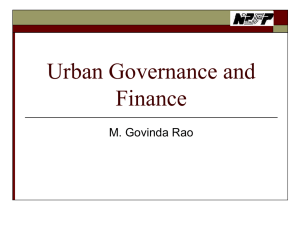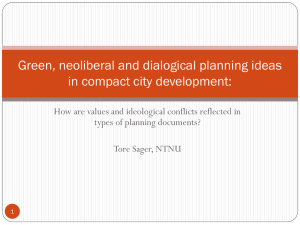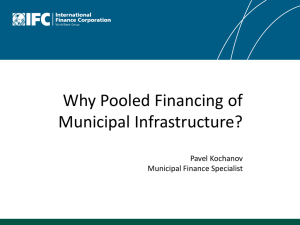MUNICIPAL BUDGET OVERSIGHT
advertisement
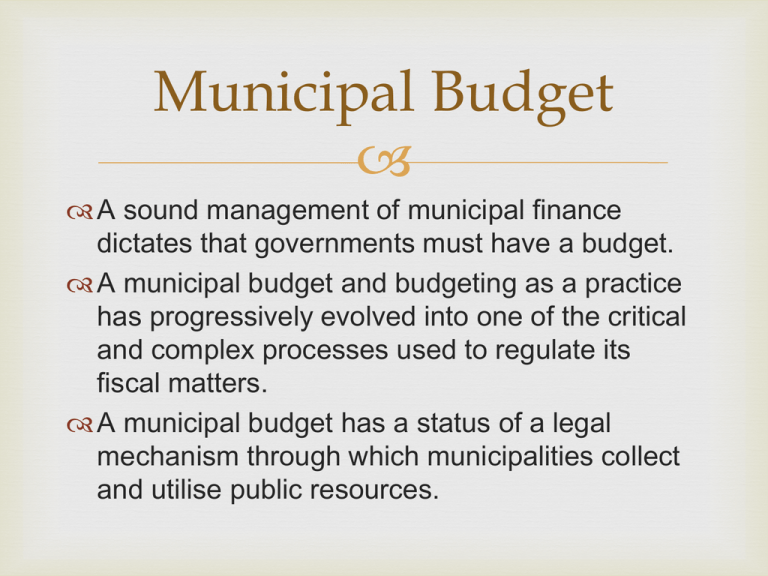
Municipal Budget A sound management of municipal finance dictates that governments must have a budget. A municipal budget and budgeting as a practice has progressively evolved into one of the critical and complex processes used to regulate its fiscal matters. A municipal budget has a status of a legal mechanism through which municipalities collect and utilise public resources. Budget Process A municipal budget results out of a process. This is commonly referred to as the budget process. In general, the budget process consists of key generic stages which are repeated annually, namely: Drafting Approval Execution Audit The Role of the Municipal Council in the Budget Process The municipal council’s role in the budget process is intrinsically linked to its representative, policymaking and oversight roles and functions. Specifically, legislatures such as the municipal council are measured by their effectiveness in performing the representative, legislative and oversight functions. Therefore, these key functions define the involvement of the municipal council in all legislative processes relevant to the budgets process. Budget Oversight The budget process is arguably one of the key processes of governance that requires active involvement of the municipal council. While the executive and administrative structures are primarily responsible for the preparation and execution of the budget, the municipal council is equally obliged to ensure that the entire budget process promotes transparency, accountability, responsiveness. Budget Oversight The municipal council ensures that the budget process is a political and democratic exercise rather than purely a technocratic exercise. The municipal council must also ensure that the budget process is not reduced to balancing income and expenditure but more about the best way of addressing the needs of the public with available financial resources. Budget Oversight Responsible stewardship for the use of public money Ensuring that public money is used in a responsible and productive way. Ensuring that value for money has been achieved in the use of municipal financial resources. Purpose of Budget Oversight To ensure executive compliance with the council’s intent. To improve the efficiency, effectiveness of administrative budgetary operatives. Review and determine financial priorities. To evaluate budget performance. To prevent abuse of public resources. To inform the public on the how the municipality is performing. Approaches for Effective Budget Oversight Fire fighting Police Patrol Requirements for Effective Budget Oversight Ex ante Oversight Concurrent Oversight Ex post Oversight Requirements Effective Committees Access to information Council-executive relationship ( to address the dominance of the executive) Independent technical capacity Governance environment Non-partisan engagement on issues Attitude and willingness to oversee the executive Exercise What in your opinion are the major factors that inhibit budget oversight


